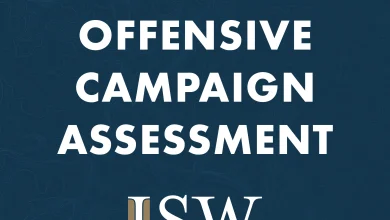Budget 2025: NI students welcome minimum wage rise

BBC
A-Level students Sophie, Caitlin, Eva and Vakare all have part-time jobs
A group of students in Newry are among millions of people who are set to benefit from a pay rise, due to an increase in the minimum wage.
In Wednesday’s Autumn Budget, Chancellor Rachel Reeves said 2.7 million people will benefit from the increases, which will take effect from April 2026.
The hourly rate for over-21s will rise by 50p to £12.71, with workers aged 18-20 seeing an 85p rise to £10.85.
Sixteen and 17-year-olds and apprentices will see their minimum wage increase by 6%.
Working at a charity stall in the Buttercrane Shopping Centre on Wednesday were A-Level students Sophie, Caitlin, Eva and Vakare from St Mary’s High School in Newry.
They all have part-time jobs and say a pay increase is always welcome.
According to Sophie, the increase will make a difference because “we work hard and you want to get the best out of it”.
“Everybody wants to be able to buy luxuries now and again.”
Caitlin already has one eye on university costs: “I think it is good if our wages increase because there is also the increase in university costs and rent that we are looking at.”
Eva believes the cost of living is going up, more than wages.
“When you think of car insurance for example, and maybe university or college, maybe down South, costs for young people are high,” she said.
‘We will be no better off’
Eileen said the cost of her grocery shop and household bills have gone up
At a “knit and natter” group at Cookstown Library in County Tyrone, women meeting over tea and biscuits said the cost of living still presented a difficult picture despite rises to the state pension.
“At the moment the groceries and the bills are quite high and everything is increasing but there’s nothing we can do about it, you have to eat,” Eileen said.
“Unfortunately we will lose it [the state pension rise] and the taxman will come and take it.
“But at the minute I can live quite comfortably with what I’ve got.”
The state pension in April will rise by 4.8% in line with average wages, according to the Chancellor.
The new flat-rate state pension – for those who reached state pension age after April 2016 – will increase to £241.30 a week, or £12,547.60 a year, a rise of £574.60
The old basic state pension – for those who reached state pension age before April 2016 – will go up to £184.90 a week, or £9,614.80 a year, a rise of £439.40
Frances believes she will be ‘no better off’
Frances had a similar view about the pension rise.
“If they are raising the state pension sure what is the point, they are taking it off us in other things,” she said.
“We will be no better off, we’ll still have to peddle on the same.
“The cost of living is ridiculous.”
Ending two-child cap benefit will be ‘life-changing’
Lucy Campbell
The removal of the two-child benefit policy will see households receive £3,500 per year for each additional child
The Chancellor Rachel Reeves also announced on Wednesday that the two-child benefit cap “within universal credit” is being lifted from April 2026.
Mother-of-four Lucy Campbell from Coleraine, County Londonderry, said it will mean her family “wouldn’t struggle anymore.”
With rising costs in recent years, Ms Campbell told BBC News NI she thinks about household finances constantly.
“I would go to bed and my head would still be constantly working, like what needs paid? Do I have enough for this?”
Ms Campbell said she has to decide what items her children can “do without” until she can afford them.
It could be the standard of their clothes, or if they need a new pair of trainers.
“It didn’t used to be as hard,” Lucy claims, “but now it’s got really, really hard.”
She told BBC News NI she always tries to budget her money but “it’s still hard even when you learn to budget, it still takes a strain on you”.
The removal of the policy, announced as part of the Budget on Wednesday, would see households receive £3,500 per year for each additional child.
Earlier this month, the chancellor told the BBC it was not right that children in bigger families were “penalised” through “no fault of their own”
A matter of ‘wait and see’ for business
Businessman Peter Murray is concerned about the tax freeze
The Chancellor also announced that tax thresholds will stay frozen until 2031.
That means what while there is no rise in income tax, any kind of pay rise could drag taxpayers into a higher tax bracket.
Peter Murray is the manager of the Buttercrane Shopping Centre in Newry. It has been in business for nearly 40 years and currently has a 98% occupancy.
“Freezing tax bands is effectively an increase in tax that takes money out of people’s pockets,” he said.
“This is never good when it comes to retail and we balance that today with the pending increase in national minimum wage which is a cost for employers like many of our tenants.”
“It is a matter of waiting to see how it plays out but it is also a matter of give and take.”
‘Lack of support for hospitality’
Jarron O’Neill-Watson
Jarron O’Neill-Watson is the owner of 2 Taps Wine Bar in Belfast.
He said he has an “underlying fear” over the “lack of support” for hospitality businesses, following the increase in the minimum wage which he will now be required to pay his staff.
“In April, we got hit with a massive National Insurance increase, which we are still feeling and trying to manage.”
“We had hoped the budget would provide some sort of support for smaller businesses in the hospitality sector to help us thought the challenging times we are in.”
But Jarron is also hoping his business will be able to capitalise on younger people dining out, due to the minimum wage increase.
“It would be great to see 18 and 20-year-olds come out to Belfast and spend their money with us to keep that spare cash in the local economy.”
Budget money for Northern Ireland
Reeves also said the government would provide an additional £370m to the Northern Ireland Executive over the next three years.
She said it would cover the government’s current Spending Review period, via the Barnett formula.
Outlining her budget, she said the benefits of investment and growth “must be built and felt in every part of the UK”.
The Barnett formula is a UK government system for allocating block grant funding to devolved administrations in Scotland, Wales, and Northern Ireland based on changes in UK-wide departmental spending.




